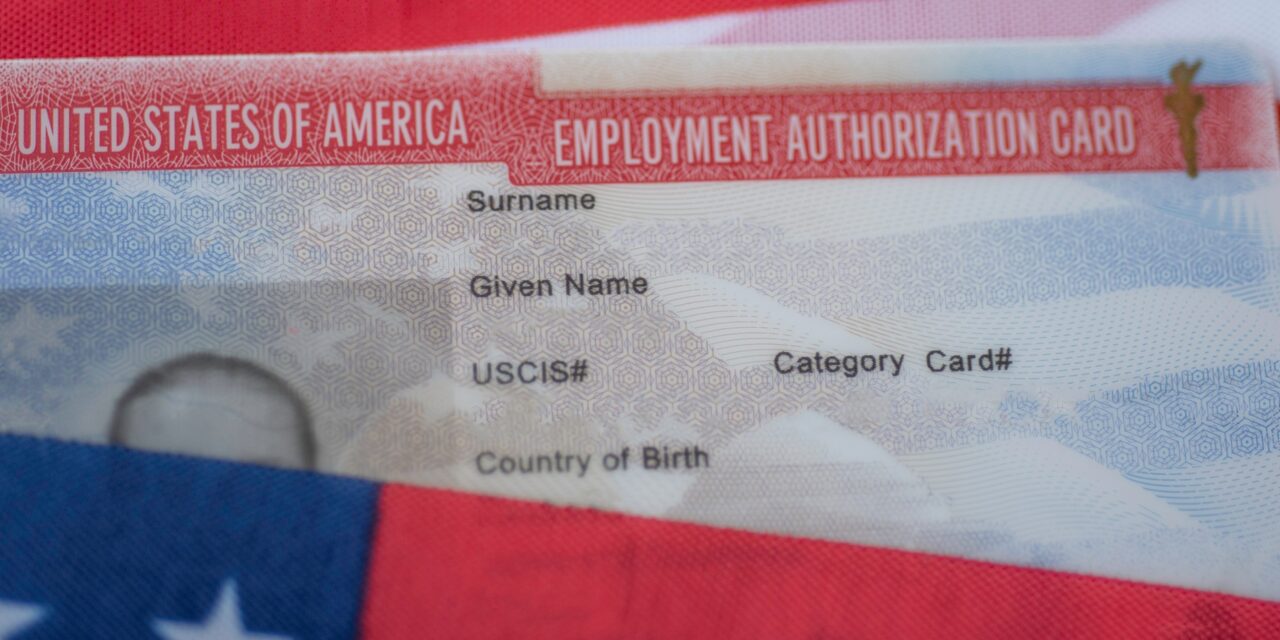On December 13, the Biden administration issued a permanent rule that automatically extends the validity of certain work permits by up to 540 days if they are timely renewed. The American Immigration Council and many other organizations and businesses made this a key ask to the outgoing administration to protect workers from employment gaps as U.S. Citizenship and Immigration Services (USCIS) continues to address its processing backlogs. This final rule is effective starting on January 13, 2025.
While processing backlogs are not new to USCIS, their size has significantly increased in recent years. In 2016, USCIS updated its regulations to allow for a 180-day automatic extension period for certain timely renewed work permits. At that time, USCIS reported that most work permits were processed within three months. However, due to operational challenges during the Trump administration – including more burdensome benefits adjudication policies, outdated fees, and decreased filings resulting from the COVID-19 pandemic – there was a hiring freeze and an overall increase in backlogs. During the first two years of the Biden administration, work permit requests also spiked, while adjudicators were re-assigned to conduct protection screening interviews at the U.S.-Mexico border.
As a result, USCIS implemented two temporary rules that extended the 180-day extension to 540 days, most recently in April 2024, to avoid widescale lapses in employment solely due to USCIS’ processing delays. The latest temporary extension, however, would have left 260,000 workers at risk of having their work permits expire before USCIS could adjudicate their renewal requests. To provide a long-term solution to prevent uncertainty for workers and employers, USCIS has now permanently changed the 180-day automatic extension period to 540 days.
The agency also made other changes to the rule to address confusion reported by employers and workers. This includes clarifying that:
- The rule applies to both work permits with validity periods that are about to expire and those that have already expired.
- While most renewal requests must be filed before the expiration date to be covered by the automatic extension, renewals based on Temporary Protected Status designations can be filed after the expiration date but must be filed during any applicable re-registration period.
- The first day the 540-day automatic extension is the day after the expiration date on the face of the work permit.
Unfortunately, in this new rule, USCIS did not expand the categories of individuals covered by the automatic extension provision to include DACA recipients or people who may have failed to timely file their renewal requests. The agency noted that DACA recipients require an approval of their underlying deferred action before they are employment authorized, thus they are ineligible. It also noted that given procedures and laws that regulate unauthorized employment, it could not extend the provision to untimely work permit renewal filings.
Nevertheless, USCIS estimates that the permanent extension will save workers and business owners billions of dollars. For example, it estimates that the overall policy to safeguards workers $10.0 billion dollars in otherwise lost income, generates $1.1 billion in federal taxes, and saves up to 39,000 employers $3.5 billion in revenue because business operations won’t be interrupted. Alternatively, without an automatic extension of up to 540 days, USCIS estimated that between 306,000 and 468,000 applicants for work permit renewals would have experienced a lapse in employment authorization between this rule’s July 2023 and March 2026.
The Biden administration’s decision to make the 540-day automatic extension permanent comes at a time when the U.S. continues to experience chronic labor shortages and just over a month when a new administration, which aims to reduce legal immigration, is to take over. Data underscores that immigrants have been critical to the strength of our current economy—including those who have entered in the past few years. According to Federal Reserve Chair Jerome Powell, “A big part of the story of the labor market coming back into better balance is immigration returning to levels that were more typical of the pre-pandemic era.”
Over the past four years, USCIS has implemented several other key changes to work permit processing to limit disruptions to the labor market. This includes extending work permit validity periods for certain categories of applicants from two years to five years, streamlining the processing of refugee work permits, expanding online filing of work permit applications for asylum applicants and parolees, and increasing its filing fees. Notably, due to overall operational changes, USCIS achieved a milestone last year by reducing its net overall case processing backlogs for the first time in years.
With this new rule, the Biden administration is not only taking steps to continue to protect workers throughout our economy but is also acknowledging the importance of the immigrant workforce to our collective livelihood.
FILED UNDER: USCIS


